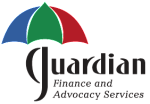A special needs trust (SNT) is a valuable financial planning tool used to set aside funds to enhance the quality of life for people with disabilities. For disabled individuals receiving public benefits, such as Medicaid or Supplemental Security Income (SSI), SNTs enable them to hold assets above the $2,000 cap while still maintaining benefit eligibility. This can be an especially valuable option for individuals who may receive an inheritance, legal settlement, monetary gift or a back payment that would otherwise disqualify them for public benefit eligibility.
What You Need to Know
To be qualified, an SNT must meet the requirements of both the Social Security Administration (SSA) and the Michigan Medicaid Program. Trusts are regularly reviewed by these organizations when they are first established on behalf of the beneficiary, and again each time benefit re-determinations are performed.
SNTs are set up to assist only the beneficiary, and funds expended must only accrue to that individual’s benefit. Funds cannot be used to the benefit of others, such as family members.
Once established and funded, an SNT is irrevocable and cannot be changed. The trust is only terminated when all funds have been expended or the beneficiary dies. Any funds remaining after the death of the beneficiary are distributed per the provisions of the SNT document. This process differs depending upon the type of SNT.
A trustee has the responsibility to manage, invest, and disburse funds on behalf of the beneficiary. The trustee is responsible for acting prudently, in accordance with the provisions of the trust, and in the best interest of the beneficiary.
There are limits to how trust funds may be spent to best preserve the beneficiary’s public benefits. While the rules are complex, the most general guideline is that trust funds should not be used to pay for goods or services provided for by other public benefits. Several examples of trust distributions that could negatively affect benefits are:
- Cash to the beneficiary that would be considered as income.
- Food, rent, or utility payments, all of which would be considered as “in-kind support and maintenance”.
- Gift cards that could be converted to cash, which would be considered as income.
With the limits above noted, there are many goods and services constituting permissible trust distributions. These distributions improve the beneficiary’s quality of life and include:
- Attorney and professional services.
- Caregiver expenses not covered by Medicaid.
- Computer equipment and internet services.
- Education expenses.
- Eyeglasses, hearing aids, and prosthetic devices.
- Home appliances, furniture, and improvements.
- Medical and dental services not covered by insurance and/or Medicaid.
- Prepaid funeral expenses.
- Television and telephone services.
- Transportation expenses, including vehicle, insurance, gasoline, and repairs.
- Vacation and travel expenses for the beneficiary only, no companions.
Trust Management Limitations
Guardian’s first goal in trust management is to build healthy and expansive relationships with our beneficiaries and help them achieve maximum levels of independence and financial health.
This goal has necessary boundaries to assure the protection and proper use of trust income and assets. These safeguards assure the original intentions of the trust creator (grantor) are honored, and that actions taken are in the best interest of the beneficiary.
- As a public fiduciary and trustee, Guardian is held to legal and ethical standards requiring us to act as a prudent person and investor. This requires Guardian to act in the best interest of beneficiaries, prudently investing and managing trust assets.
- All trust documents contain language defining the powers and duties of the trustee. These vary, depending upon the intentions of the original grantor of the trust. Some are general, but some are very specific. For example, a trust may limit the use of funds for a educational expenses until the beneficiary reaches a certain age.
- In SNT management, multiple complex regulations govern the actions of the trustee and define permissible expenditures. Anyone exploring the use of an SNT should become familiar with these limitations before entering into the trust.
Please contact Martha Morgan, Trust Officer, at 269-788-1690 with questions.
